A unique perspective on the Kurds, experienced through a trip to Kurdistan.
The prospect of Kurdistan as a homeland for the Kurds began with the colonial division of western Asia, which followed World War I. With the breakup of the Middle East that created new borders in the Levant, the Treaty of Sèvres in 1920 betrayed promises to give the Kurds their own state.
The Scattered Lands of Kurdistan
Since then, Kurdistan has come to be recognized across the borders of four different countries: Iraq, Syria, Iran and Turkey — different Kurdish regions, yet with the same problems throughout the last century.
The fight for Kurdish rights has always been a problem for those Kurds willing to use their own language, which is often banned in state institutions. This is just one aspect of repression that Kurds face in their demand for autonomy and historical recognition.
Today, a part of Kurdistan lies within Turkey, where a ceasefire was agreed upon between the Turkish government and the Kurdistan Workers’ Party (PKK) in early 2013. The conflict in Turkey has lasted for over 30 years, resulting in approximately 40,000 deaths.
The Kurds in the Middle East have adopted different strategies. The PKK opted for guerrilla warfare to prevent the Turkish Army from trampling on Kurdish rights. In Syria, after the uprising in 2011, which turned into a civil war, the Kurds were able to establish a higher degree of self-organization in the predominantly Kurdish parts of the country by building new institutions such as hospitals and schools.
The Kurds in Rojava (Syrian Kurdistan or northeastern Syria) have achieved a certain degree of emancipation from Assad’s regime, but are forced to fight against rebel groups such as the al-Qaeda-affiliated Jabhat al-Nusra.
In Iran, there even existed a Kurdish Republic from 1946-47. After its demise, a long period of repression against the Kurds began. Today, Kurds in Iran enjoy cultural benefits since they are allowed to write and publish in the Kurdish language. Nevertheless, the political problems have not been resolved.
After many years of popular struggle against Saddam Hussein’s regime, Iraqi Kurds carved out an autonomous region and a parliament, officially part of the Kurdistan Regional Government (KRG) in northern Iraq.
During my recent journey, I crossed three parts of Kurdistan to create a first-hand account of the territory, which is important for the region’s contemporary geopolitics and human rights struggle. I traveled along the borders of Iraq, Turkey and Syria.
PKK Fighters: How a Guerrilla Lives
My first stop was Iraqi Kurdistan. One night, I was getting ready to meet several Kurdish guerilla fighters camped out in the Qandil Mountains. I passed through countless inspections by the Iraqi Army and soon, almost every sign of human life seemed to have disappeared. I didn’t know where I was exactly, I just knew I was very close to the Iranian border.
Finally, I reached the Kurdish outpost. Following further security routines, I could finally leave my pick-up. After spending one night at their camp, where I slept in a small, concealed hut, at 5:30am I began my day, following two guerrilla fighters: a man and a woman. These people have chosen to dedicate their lives to the Kurdish struggle.
I conducted several interviews with them, which took place both in military training areas and in sites used for studying. The guerillas placed great emphasis on issues such as feminism and environmentalism. I talked with them about the guerrillas’ personal lives, what they missed from their old lifestyle and what, instead, is essential and indefeasible about their life in the mountains. They also discussed the Middle East’s political issues and gave their opinion about the “crisis” of the ceasefire with the Turkish government.
A guerrilla fighter told me: “We want the Kurdish, the Turkish and the Arabs to live side by side in all the countries of the Middle East, just like they do in Lebanon, Jordan or Turkey. So, you see, we don’t want to overpower other communities and create a Kurdistan supreme.”
The woman I spoke to grew up in a Kurdish family in Germany, but every summer used to go back to Turkey where she suffered different forms of humiliation and discrimination. She believes that Europe has accepted the Turkish oppression of the Kurds.
Looking for a way to counter this repression, during one of her summer holidays spent in Turkey’s Kurdish regions, she decided to climb Qandil and joined the guerrillas’ fight.
Meanwhile, the man has been living in the Qandil Mountains since 1995. He said he does not trust the negotiation process with Turkey. He is worried that it will lower the attention toward the conflict, which could carry dangerous consequences.
The journey into the guerrillas’ world continued along the bunkers used for medical assistance, up to a hospital built by the PKK, but only for use by civilians living around Qandil.
Here I met Medya, a German volunteer doctor, who has decided to support the Kurdish fight with her knowledge. Medya doesn’t want to go back to Germany, since its government does not recognize the Kurdish struggle and labels the PKK a terrorist group. In contrast, she considers the PKK to be a party that fights for freedom.
In the hospital with around 60 beds, Medya and a few volunteers are in charge of surgeries for the civilians of the area.
After leaving the guerrillas in the Qandil Mountains, my trip continued over the lands of Iraqi Kurdistan to reach one of the places where, during the 1990s, some Kurds, escaping from mass repression in Turkey, found refuge in Mahmura, a province of Mosul which is located in Iraqi Kurdistan.
In the past this was only a desert and a few tents; but now, 14 years later, the camp has become part of daily life for refugees. The people living there have transformed their unstable situation and temporary set-up into something normal, with stable habitations and even self-organized elections.
Escaping From Syria
Afterward, I decided to continue my journey inside Iraqi Kurdistan, which is where new perspectives and dreams for all Kurdish people hope to be realized, since it has become an autonomous region. This area has recently become a shelter for many fleeing the Syrian Civil War. Six refugee camps are located there, accommodating Syrians who have managed to escape the violence. In essence, the Kurds of Iraq are helping the Kurds of Syria.
In Bardarash, Mosul province, refugees are welcomed and babies are born, but people die as well. Everybody is waiting, hoping for better — this is the life of a refugee.
I traveled to the enormous refugee camp near the city of Domiz in Iraqi Kurdistan. For decades, the Assad regime of both father and son had ignored the hardships of the Kurds, scoffing at them.
On many occasions, the Syrian government has refused to grant basic rights such as education, health care and identity cards to the Kurdish people. With the outbreak of the Syrian revolution and the civil war, Syrian President Bashar al-Assad finally made some concessions to the Kurds and gave some of them citizenship.
The Kurds in Syria have survived the chaos of the recent upheavals, established a network, and eventually taken control of the cities they were allowed into.
However, just when the Kurds had resolved their issues with the Syrian Army, new threats were posed by various factions within the rebel ranks — by jihadists, smugglers and mercenaries, all involved in the effort of opposing Assad’s regime.
In Domiz, I was able to meet Edrees N. Salih, the director of Domiz camp. In our conversation, he denounced the lack of aid from the international community.
Oil, Autonomy and Interests: Iraqi Kurdistan
Iraqi Kurdistan is very rich thanks to the oil that the region sells to foreign companies like Chevron. When I was there, I visited the autonomous parliament, where I talked to Aso Kareem, an MP from the Kurdistan Democratic Party (KDP).
He discussed the relationship between Kurdish rights and the economy of the region, arguing that it is important not to disturb the building of a gas pipeline between Iraqi Kurdistan and Turkey. Moreover, despite the presence of PKK fighters in the region, the Kurdish Iraqi government does not have official contact with the guerrillas, whilst it has strong commercial relations with Turkey. Indeed, the Kurdish struggle has its own logic and inner challenges.
The Heritage of Colonialism and Turbulent Borders
I left the Kurdish Iraqi landscapes and headed to the Syrian-Turkish border. The place is emblematic of the colonial division of Nusaybin (in Turkey) and Qamishlo (in Syria), which used to be one city during the Ottoman-era.
The Syrian War, that has dramatically affected the lives of Kurds in Syria, has also had strong reverberations on those Kurds who live on the other side of the border, in Southeast Turkey.
In Nusaybin, I witnessed how the city’s mayor, Ayşe Gökkan, was about to start her hunger strike to protest against the Turkish government’s construction of a wall along the Turkish-Syrian border. The mayor claimed it would sharply affect the solidarity relations with Kurds across the border and also prevent the delivery of aid to the suffering Syrian population. Despite her protests, the wall was built.
In this city, right at the border of Syria, I was also able to meet Abdulbari Eren, head of the local section of the Kurdish political movement, the Peace and Democracy Party (BDP). He talked very enthusiastically about a new life for Kurds who live in Rojava (Syrian Kurdistan) and their capacity to self-organize their society by building new institutions such as hospitals and schools.
He also pointed out that, despite their emancipation from Assad’s regime, Syrian Kurds are forced to fight against Jabhat al-Nusra.
We Want Kurdish
The last step was again a trip inside Kurdish territory. I traveled to “the capital” of Turkish Kurdistan: Diyarbakir. In the streets, I spoke to three young men: two lawyers and a journalist — meaningful jobs for the protection of human rights in Turkey.
Sitting on a bench, the young lawyer explained his stance toward the ceasefire between the Turkish government and the PKK. To him, the PKK took the first step and tried to respect the agreement by withdrawing its fighters from the borders.
The lawyer was certain that this time the public’s reaction would be very optimistic in comparison with the past because, all in all, what people ultimately want is an answer to the Kurdish question. He said: “Maybe today there aren’t the same casualties of the past, but people are killed anyway. We need to keep working in order to find a durable solution.”
The two other men focused on the hard life of a community that strives to achieve their rights. First and foremost, language remains a big issue. While in the past it was forbidden to speak the Kurdish language even in daily life, today it is possible to speak it in the streets but still not in hospitals, courts and schools.
They reminisced about their adolescence when one of them had been arrested because he owned a Kurdish record. All of them do not agree with the package of proposals the Turkish government presented during the last negotiations.
One point of contention is that Kurdish-language lessons are only available in some private schools:
“During my education, why can I learn [the] Turkish language and not Kurdish? As a second language we can learn English [and] French, but the courses for the Kurdish language are forbidden. We want to study Turkish and other languages, but above all we would like to enjoy Kurdish courses.”
This last encounter in Diyarbakir, at the end of my journey across Kurdistan, has reinforced my awareness that there still is a long-road ahead for Kurdish rights.
The views expressed in this article are the author’s own and do not necessarily reflect Fair Observer’s editorial policy.
Image: Copyright © Shutterstock. All Rights Reserved
Support Fair Observer
We rely on your support for our independence, diversity and quality.
For more than 10 years, Fair Observer has been free, fair and independent. No billionaire owns us, no advertisers control us. We are a reader-supported nonprofit. Unlike many other publications, we keep our content free for readers regardless of where they live or whether they can afford to pay. We have no paywalls and no ads.
In the post-truth era of fake news, echo chambers and filter bubbles, we publish a plurality of perspectives from around the world. Anyone can publish with us, but everyone goes through a rigorous editorial process. So, you get fact-checked, well-reasoned content instead of noise.
We publish 2,500+ voices from 90+ countries. We also conduct education and training programs
on subjects ranging from digital media and journalism to writing and critical thinking. This
doesn’t come cheap. Servers, editors, trainers and web developers cost
money.
Please consider supporting us on a regular basis as a recurring donor or a
sustaining member.
Will you support FO’s journalism?
We rely on your support for our independence, diversity and quality.



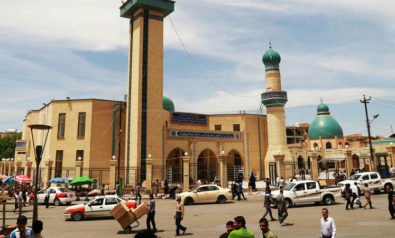

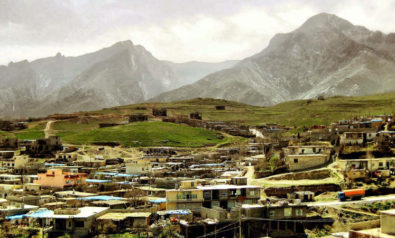

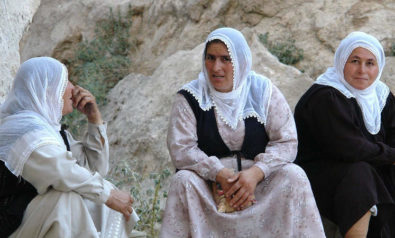

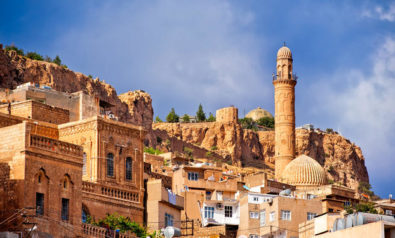
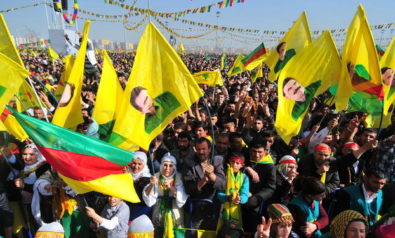
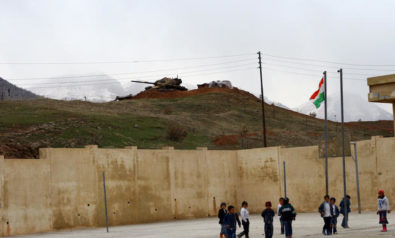

Comment